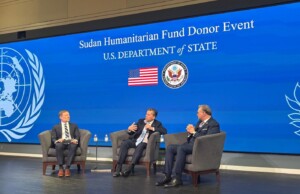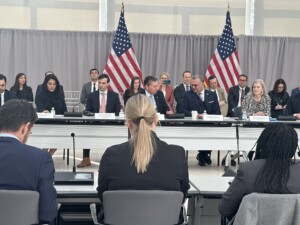Sudan’s Al Bashir to ‘drastically review macroeconomic fundamentals’
Sudan’s President Omar Al Bashir said in his speech on the occasion of Eid El Adha that he will drastically review the macroeconomic fundamentals, leading to the adoption of detailed policies and measures to stimulate production, increase exports, and control imports.
 President Omar Al Bashir (SUNA)
President Omar Al Bashir (SUNA)
Sudan’s President Omar Al Bashir said in his speech on the occasion of Eid El Adha that he will drastically review the macroeconomic fundamentals, leading to the adoption of detailed policies and measures to stimulate production, increase exports, and control imports.
However, Prof Hamid Eltigani, the head of public policy and administration at the American University in Cairo, scoffed at Al Bashir’s speech, describing it as “a talk for domestic consumption”.
In an interview with Radio Dabanga, Eltigani said that “Al Bashir remaining in power is one of the greatest factors in the continuation of the economic crisis”.
He doubted the government’s ability to economic reform for weakness, inefficiency and inability of the economic team to formulate economic policy based on scientific grounds.
President Al Bashir announced that he would control the financial organs, units, and government institutions through the control of the movement of balances and financial accounts of these organs to be under the domination and supervision of the Central Bank of Sudan.
Central Bank of Sudan
However, Eltigani described the decision of the Central Bank as a mistake that leads to the centralisation of the economy. He said that the decision would lead to the drying up of commercial banks and increase rates of government revenues.
He likened the situation to the government’s recent policy of controlling foreign currency through liquidity control, and called for the independence of the Central Bank of Sudan and its exclusion from the executive.
The measures to fight fraud and corruption came too late and will not have any positive impact on economic reform, he said.
The economic analyst likened the current government’s policies to “someone wanting to extinguish a fire in a house of a burning village”.











 and then
and then